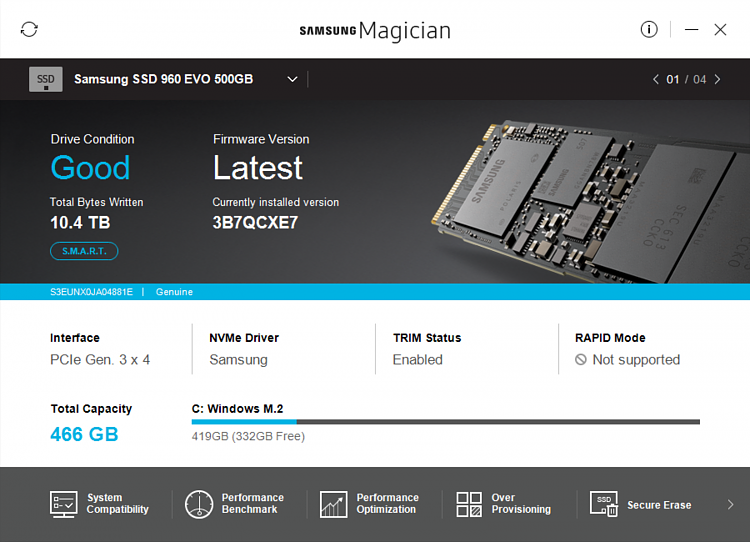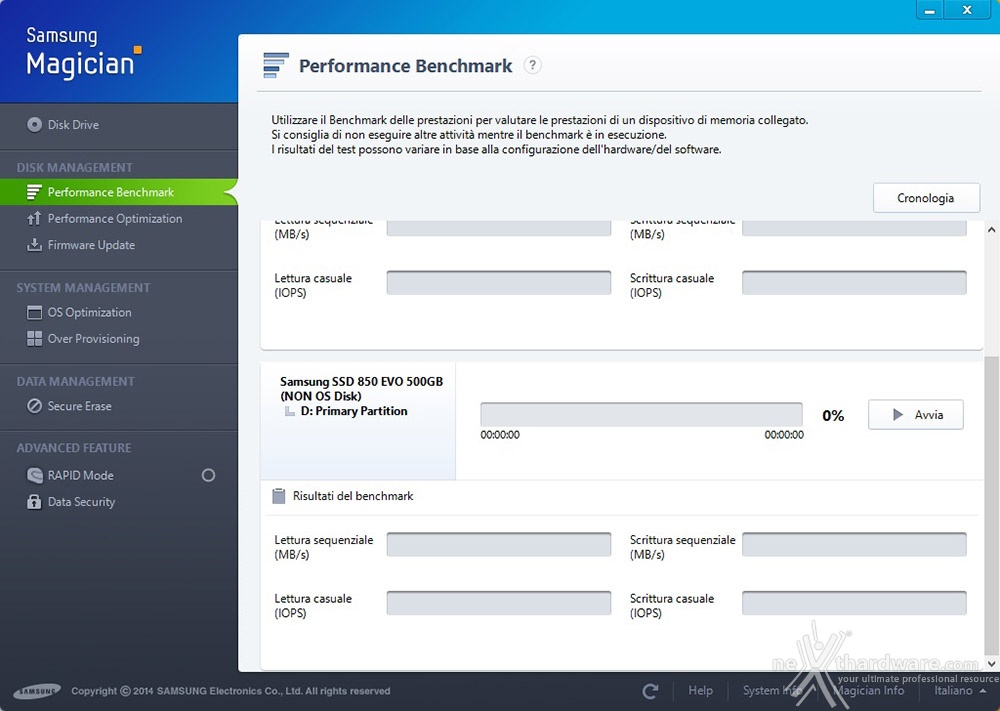


What is the hardware level encryption?Įncryption is the processing of taking data from its standard state and processing it so it is no longer readable without a ‘key’ to unlock it. Here I hope to clear up some of that mystery and show how to enable the hardware level encryption. In fact, the more I looked into it I noticed that it’s not even enabled by default and there’s no clear instruction on how to enable it. I think I will contact the Fujitsu support and ask for a firmware update, but at the moment I would no install it until Intel has a solution for the problem that BIOS since version 0066 does not accept Samsung 840/850/860 SSDs.The Samsung range of SSD drives boast about their hardware level encryption – but what surprises me is that there is so little detail about this feature. From Fujitsu there is no firmware update available and the updates from DELL or Lenovo can't be installed on this SSD. My PM851 is from a Fujitsu notebook, in which I put an Samsung SSD 850 PRO because I needed TCG OPAL drive encryption.

It is also correct that the Samsung PM851 is an OEM drive. I installed it some weeks ago with Samsung Magician. My three Samsung SSD 850 EVO have the latest firmware already installed: EMT02B6Q. I haven't tested if a downgrade of BIOS would be possible, but if you say that it isn't, I don't need to try it by myself. I really hope that there is a solution for it. I am very sad about this BIOS-Update and that it broke my SSDs.

So: What can I do? Do I really need new SSDs after this BIOS-Update? I can't believe that the BIOS-Update 0068 broke all of the three Samsung SSD 850 EVO in all of the three NUCs. But I had no luck, I can't boot the system when the SSD 850 EVO is plugged in.Īll of my three NUCs have exactly the same behavior. Then I reinserted it into the NUC and wanted to do a fresh install of Windows 10. I took the Samsung SSD 850 EVO and put it into another PC and did a Secure Erase. With my Windows 10 USB-Stick I could install a fresh system on this SSD. Then I changed the SSD and put in a Samsung PM851 with 128 GB. I enabled setup defaults, but no success, the Windows system does not boot. When I unplug the SSD, I can access BIOS setup. I can't even go to BIOS Setup or startup menu. The OS does not start any more, only the Intel NUC-Screen appears. After it had finished the LED was solid blue and the NUC tried to reboot. While it installed the update, the LED was blinking blue. Today I did the BIOS-Update against Meltdown and Spectre (0068): I own three NUC5PPYH with Samsung SSD 850 EVO 120 GB, 8 GB RAM and Windows 10 Pro.


 0 kommentar(er)
0 kommentar(er)
